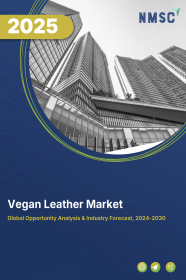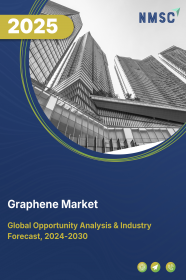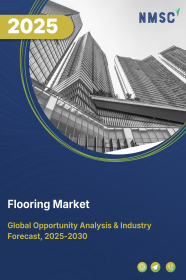
Vegan Leather Market by Type (Plant Based, and Synthetic), by Application (Footwear, Clothing & Accessories, Automotive, Furniture & Home Décor, and Others), and by Distribution Channel (Online, and Offline)–Global Opportunity Analysis and Industry Forecast 2024-2030
US Tariff Impact on Vegan Leather Market
Trump Tariffs Are Reshaping Global Business
Market Overview
The global Vegan Leather Market size was valued at USD 73.38 billion in 2023 and is predicted to reach USD 139.02 billion by 2030 with a CAGR of 9.58% from 2024-2030.
Vegan leather also known as plant-based leather refers to artificial leather material crafted to replicate the appearance and texture of real leather. Vegan leather mimics the look and feel of traditional animal-derived leather but is made entirely without the use of animal products.The vegan leather includes numerous advantages such as cruelty-free production, environmental sustainability, durability, versatility in texture and cost effective.
The use of ethical and eco-friendly material attracts consumers seeking eco-friendly and cruelty free products without compromising on style or functionality. Vegan leather includes versatile utilization in varied applicability in furniture, footwear, automobile, clothing, accessories and others. It makes vegan leather an increasingly popular option across conscientious market seeking responsible and stylish solutions in contemporary time.
Market Dynamics and Trends
The increasing awareness towards cruelty free products by consumers is increasing the demand of vegan leather as they seek alternative to traditional leather. According to Four Paw International Organization report, 2023, 38 major apparel brands in EU wrote to EU Commission to support Europe citizen initiative of Fur Free Europe with 1.7 million signatories to ban fur farming and a ban on the import of farmed fur products into the European market. Vegan leather eliminates the adverse effects of leather on animal welfare and the environment that accelerates its demand in the market.
Additionally, stringent government regulation towards animal protection is driving the demand of vegan or plant-based leather market. Stricter laws and regulations are being implemented worldwide to address concerns regarding animal cruelty leading to the adoption of vegan leather by fashion brands.
According to Humane Society of U.S. report, 2022, law was passed in the world’s largest fur market that is California for ban on animal fur use in clothing, footwear and accessories manufacturing. The increasing stringency of laws and regulations surrounding animal in the fashion industry is boosting the vegan leather market demand, as consumers seek alternatives that align with these stricter standards.
Moreover, the rising environmental concerns such as deforestation, global warming and greenhouse gas emission is further accelerating the market demand of vegan leather. Traditional leather production involves significant environmental damage such as deforestation, water pollution, and greenhouse gas emissions boosting up the demand of vegan leather that is made from plant-based alternatives or recycled resources.
According to the report of International Energy Agency, 2023, there is rise in global carbon dioxide emission by 6% in 2022. The rising rate of carbon dioxide rate accelerates the demand for eco-friendly materials such as vegan leather due to its contribution towards mitigating the environmental impact and promote conservation.
However, the vegan leather lacks the durability and longevity of traditional leather, potentially leading to issues such as peeling, cracking, or fading over time, acts as major constraints in growth generation of the market. On the other hand, the integration of 3D printing and digital fabrication technology in vegan leather to provide customizable options to customers is expected to generate significant growth opportunities for the market in the forthcoming years.
Market Segmentation
The vegan leather market report is segmented on the basis of type, application, end users and region. On the basis of type the market is divided into plant based, polyurethane or polyvinyl plastic, and bio based. On the basis of application, the market is bifurcated into furniture, footwear, automobile, clothing, accessories, and others. On the basis of end users, the market is divided into fashion, furniture, automotive, textile, electronics and others. Regional breakdown and analysis of each of the aforesaid segments include regions comprising North America, Europe, Asia-Pacific, and RoW.
Geographical Analysis
North America holds the dominant share in the vegan leather market and is projected to maintain its dominance throughout the forecast period. This is attributed due to the stringent government regulation towards animal welfare in countries such as U.S. and Canada.
In 2021, U.S. Congress introduced a law to prohibit the import and commercialization of kangaroo parts, supported by the Kangaroos Are Not Shoes initiative. The objective of the law is to prevent major brands such as Nike and Adidas from utilizing kangaroo leather in their merchandise. The presence of regulatory pressures in the region to prioritize animal welfare accelerates the demand of vegan leather as it involves no trace of animal products.
Moreover, the rising awareness towards cruelty free products in the region is accelerating the demand of vegan leather. Growing concern for animal welfare the drives awareness towards cruelty free products such as vegan leather that use no trace of animal products and is free from animal testing.
In 2021, Canada officially passed measures through the Budget Implementation Act to ban animal testing and trade, marking a significant step in ending these practices within the country that had 625,000 signatures by Canadian citizens. Adoption of vegan leather enable businesses in the region to ensure compliance with these stringent legal regulations regarding animal cruelty.
On the other hand, the Asia Pacific region is expected to show a steady rise in the vegan leather market share due to growing environmental concern. The production of traditional leather requires vast amounts of land for grazing cattle and growing feed crops. This led to growing consciousness among consumers towards adoption of vegan leather, made from synthetic or plant-based materials that reduces the demand for land use and helps in preserving forests.
On July, 2020 China’s newly amended forest law came into effect, that includes a ban on buying, transporting, and/or processing illegally sourced timber, and requires processing companies to establish a data record of raw materials and products (Article 65). The adoption of such stringent policy towards protection of environment drives the demand for vegan leather, as consumers actively seek alternatives to alleviate the adverse effects linked to traditional leather manufacturing.
Moreover, the presence of key market players such as Ananas Anam Ltd., Desserto and Arture in the region that are adopting various strategies including product launches is driving the growth of market. In 2023, Rashiki launched banana leather bag in India to use the waste generated by every ton of fruit by turning into fibre to offers Indian customers with first banana leather bag. The launch of such vegan leather products in the market provides customers to choose from diverse range of products influencing their buying decision.
Competitive Landscape
The vegan leather industry comprises various market players such as Ananas Anam Ltd., Desserto, Anhui Anli Material Technology Co., Ltd., BOZE LEATHER, Kuraray Co., Ltd., General Silicones Ltd., Sappi North America, Malai Design & Materials Pvt. Ltd., Nupelle Ltd., Banofi Leather, Bolt Threads, HZCORK, PEEL Lab, FurniLeather and Yarwood Leather Ltd. These market players are adopting various strategies including product launches and partnership to stay competitive and maintain their market positions.
For instance, in March, 2024, Sappi North America partnered with Biophilica to launch the first plastic-free leather alternative that contributed to the advancement of sustainable materials in the vegan leather market. This partnership introduced a new eco-friendly option for consumers seeking cruelty-free and environmentally responsible leather alternatives.
Further, in December, 2023, Nupelle launched Panex, a sustainable and eco-friendly leather alternative to revolutioniz the vegan leather industry. This product launch represented a significant innovation in the market that offered consumers a more sustainable and cruelty-free option without compromising on quality or style.
Moreover, in April, 2023, General Silicones launched Compo-SiL (SL series) silicone, a new vegan synthetic leather, catering to the rising demand for sustainable alternatives in the fashion industry. This eco-friendly material is designed to offer a cruelty-free and environmentally conscious option for fashion brands. The launch of this product aligns with the company’s commitment towards more sustainable and animal-friendly materials.
Key Benefits
-
The report provides a quantitative analysis and estimations of the vegan leather market from 2024 to 2030, which assists in identifying the prevailing market opportunities.
-
The study comprises a deep-dive analysis of the current and future vegan leather market trends to depict prevalent investment pockets in the industry.
-
Information related to key drivers, restraints, and opportunities and their impact on the market is provided in the report.
-
Competitive analysis of the key players, along with their market share is provided in the report.
-
SWOT analysis and Porters Five Forces model is elaborated in the study.
-
Value chain analysis in the market study provides a clear picture of roles of stakeholders.
Vegan Leather Market Key Segments
By Type
-
Plant Based
-
Pineapple Leather
-
Cactus Leather
-
Mushroom Leather
-
Apple Leather
-
Other Product Types
-
-
Synthetic
By Application
-
Footwear
-
Clothing & Accessories
-
Automotive
-
Furniture & Home Décor
-
Others
By Distribution Channel
-
Online
-
Offline
By Region
-
North America
-
The U.S.
-
Canada
-
Mexico
-
-
Europe
-
The UK
-
Germany
-
France
-
Italy
-
Spain
-
Denmark
-
Netherlands
-
Finland
-
Sweden
-
Norway
-
Russia
-
Rest of Europe
-
-
Asia Pacific
-
China
-
Japan
-
India
-
South Korea
-
Australia
-
Indonesia
-
Singapore
-
Taiwan
-
Thailand
-
Rest of Asia Pacific
-
-
RoW
-
Latin America
-
Middle East
-
Africa
-
REPORT SCOPE AND SEGMENTATION:
|
Parameters |
Details |
|
Market Size in 2023 |
USD 73.38 Billion |
|
Revenue Forecast in 2030 |
USD 139.02 Billion |
|
Growth Rate |
CAGR of 9.58% from 2024 to 2030 |
|
Analysis Period |
2023–2030 |
|
Base Year Considered |
2023 |
|
Forecast Period |
2024–2030 |
|
Market Size Estimation |
Billion (USD) |
|
Growth Factors |
|
|
Countries Covered |
28 |
|
Companies Profiled |
15 |
|
Market Share |
Available for 10 companies |
|
Customization Scope |
Free customization (equivalent up to 80 working hours of analysts) after purchase. Addition or alteration to country, regional, and segment scope. |
|
Pricing and Purchase Options |
Avail customized purchase options to meet your exact research needs. |
KEY PLAYERS
-
Ananas Anam Ltd.
-
Desserto
-
Anhui Anli Material Technology Co., Ltd.
-
BOZE LEATHER
-
Kuraray Co., Ltd.
-
General Silicones Ltd.
-
Sappi North America
-
Malai Design & Materials Pvt. Ltd.
-
Nupelle Ltd.
-
Banofi Leather
-
Bolt Threads
-
HZCORK
-
PEEL Lab
-
FurniLeather
-
Yarwood Leather Ltd

















 Speak to Our Analyst
Speak to Our Analyst





















